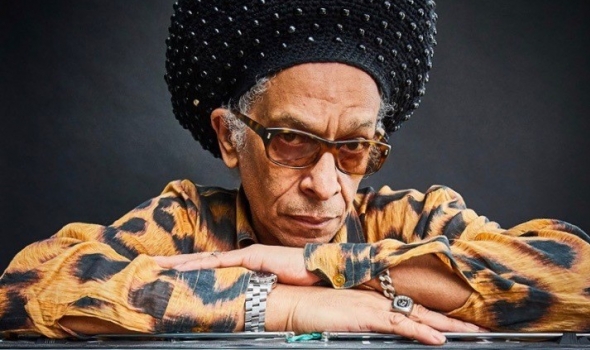Letts came to prominence in the London punk scene during the late-1970s. While managing the clothing store Acme Attractions, he met a number of local and touring musicians who were won over not just by the store’s electric-blue zoot suits but also Letts’ dub reggae soundtrack.
This led to Letts DJing at the seminal punk rock club The Roxy in central London. His real distinction, however, came as a documentary filmmaker. In 1978, he released The Punk Rock Movie, which captured the Sex Pistols, Siouxsie and the Banshees, The Clash, The Slits and more at the height of the punk boom.
The rise of UK punk rock is often noted for triggering cultural upheaval and facilitating social and individual liberation. Letts remembers why its emergence was so important.
“In the mid-to-late-‘70s the social, political and economic climate here was shit,” he says. “Or as my friend Johnny Rotten so eloquently put it, it felt like we all had no future. It was grim. Lucky for me I had a bit of a soundtrack to ease my pain, which was reggae.
“My white mates were not so lucky because the popular music in those days was this kind of prog rock thing that had no bearing on the mood of the street. So basically my white mates set about creating a soundtrack that was of the people, for the people, by the people. And that was punk rock.”
Letts has made documentaries about everyone from The Clash, The Jam and Gil Scott Heron to Sun Ra, Franz Ferdinand and Paul McCartney. His 2005 film Punk: Attitude – which framed punk as an ongoing counter culture – won Best Documentary at that year’s Melbourne Film Festival.
His film work also includes music videos for The Clash, The Pretenders, Elvis Costello and Eddy Grant and the feature films Dancehall Queen and One Love. In 1984 he co-founded Big Audio Dynamite with Mick Jones, remaining a member for six years.
These days, Letts hosts the Culture Clash radio show on BBC Radio 6 Music as well as continuing to work as a documentarian and DJ. Technology has obviously come a long way since Letts started DJing, but his general intention is the same.
“It keeps me in touch with people,” he says. “That’s how I became friends with [the punk rockers], through exchanging culture; turning them on with my bass lines, them turning me on with the whole DIY thing. Ultimately, it’s about cultural exchange. I think that’s what’s going to make the world a better place – embracing our differences.”
The Clash and The Slits are two acts that conspicuously embraced the influence of Jamaican music. But while Letts is often credited with introducing the punk scene to reggae, he’s hesitant to take too much credit.
“I think all the people I turned onto reggae in the late-‘70s when I was DJing at the Roxy were all the white folks who didn’t have any interaction with black people at that time. But, to be quite honest with you, there were other steps towards that whole punky-reggae thing.
“Trojan Records, who are celebrating their 50th anniversary this year, they had a big part in sowing the seeds for the UK’s love of Jamaican music. People of my age like Joe Strummer and Paul Simonon and John Lydon, they all would’ve known that Trojan stuff and they liked it.
“It’s a testimony to the power of culture. Because, while the politicians are trying to drive people apart, at ground level music and culture are actually uniting people, black and white. That’s where shit starts.”

